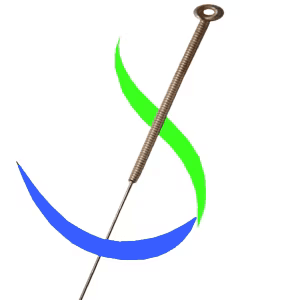Acupuncture
The Journey of Acupuncture
Acupuncture, a cornerstone of Traditional Chinese Medicine (TCM), has a rich history that spans thousands of years. What began as a mystical healing practice in ancient China has evolved into a globally recognized form of holistic healing. Today, millions of people turn to acupuncture not just for relief from pain but as part of a broader approach to wellness.Acupuncture’s origins trace back over 2,500 years in ancient China, where it was first documented in classic texts like the Huangdi Neijing, also known as the Yellow Emperor’s Inner Canon. The insertion of fine needles into specific points was thought to restore this balance and promote natural healing. Over centuries, acupuncture techniques were refined and adapted, spreading to neighboring Asian countries.Throughout history, acupuncture has faced periods of skepticism and scientific scrutiny, yet it persisted largely due to its effectiveness. During the 20th century, Western medicine began to take notice, with research gradually uncovering the physiological effects behind acupuncture’s benefits. In the modern era, technological advances like electroacupuncture have expanded its applications.The global recognition of acupuncture surged in the late 20th century as awareness of holistic healing and alternative medicine grew. In the West, the 1970s marked a turning point when a New York Times reporter’s favorable account of acupuncture in China sparked widespread curiosity. Since then, it has become an integral component of integrative medicine clinics, health spas, and wellness centers around the world. Its reputation as a safe, drug-free approach to managing pain, stress, and various health conditions has contributed tremendously to its popularity.Moreover, scientific studies have increasingly supported acupuncture’s efficacy, helping it gain acceptance within the broader medical community. The World Health Organization (WHO) formally recognized acupuncture’s potential for treating numerous health issues, further cementing its legitimacy.Today, acupuncture is celebrated not only for its historical significance but also as a versatile, evidence-based complement to conventional treatments. Its journey from ancient China to the global stage exemplifies how traditional healing arts can adapt and thrive in modern times. As research continues and awareness expands, acupuncture’s popularity is poised to grow, making it a vital part of holistic health strategies worldwide.
As more people seek natural, effective solutions for health and wellness, acupuncture’s future remains bright, promising to continue its role as a vital component of integrative medicine for generations to come.




Schedule your appointment now!